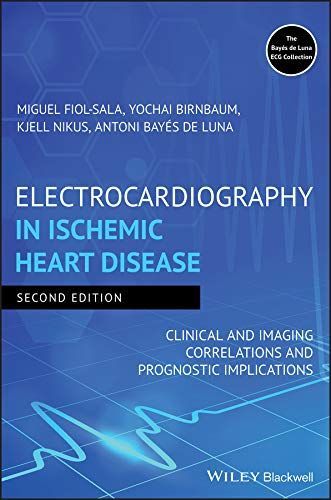
Electrocardiography in Ischemic Heart Disease Clinical and Imaging Correlations and Prognostic Implications
A fresh assessment of ischemic electrocardiography, its prognostic correlations, and the concepts and principles that underly its use The electrocardiogram (ECG) is integral to the accurate diagnosis and optimal management of patients with ischemic heart disease. Picking up a wide range of indicators, it provides valuable prognostic data to cardiologists and emergency medicine specialists for whom ECG readings are a trusted and everyday resource. Electrocardiography in Ischemic Heart Disease is designed to help enhance such clinicians' understanding of ECG recordings and their relationship to anatomical patterns of myocardial ischemia, thereby facilitating the continued improvement of patient care. For this new edition, the book's globally recognized team of authors has revised and expanded the original text to bring it up to date with the cardiology of today. Practical explanations of electrophysiological mechanisms, ischemic insults, and arterial occlusions are placed in the context of the ECG's day-to-day use, while full-color images illustrate core concepts in a vivid and instructive manner. This essential guide: Demonstrates correlations between ECG recordings and anatomical patterns of myocardial ischemia Covers STEMI, special forms of NSTEMI, and Q waves Describes electrocardiographic patterns of ischemia, injury, and infarction Explores advanced techniques such as contrast-enhanced cardiac magnetic resonance Electrocardiography in Ischemic Heart Disease is an indispensable resource for both trainee and practicing cardiologists, emergency medicine physicians, and any clinicians involved in the diagnosis and management of ischemic heart disease.